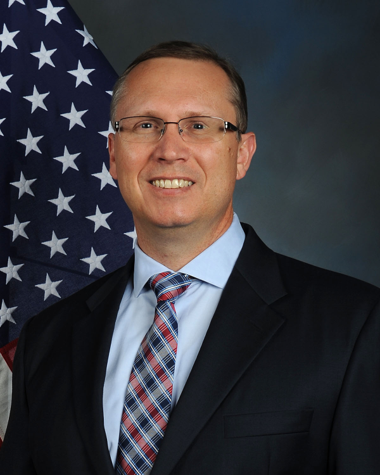Back to the Future: Personal Perspectives Based on 27 years Supporting Air Force Strategic Missions
Description

Dr. Rod Miller Seminar
The world has dramatically changed from a technological perspective since the end of the Cold War. However, the re-emergence of “long-term strategic competition” as espoused in the 2018 National Defense Strategy and Nuclear Posture Review appear to be more closely aligned with the geopolitical situation which was evident during the 1980s than the wished for post-Cold War world where nuclear weapons and such competition were relics of a by-gone era. In this presentation I provide my perspectives as a senior military technologist who witnessed first-hand the transition of our Cold War space and nuclear deterrence posture at the technical and programmatic level and subsequent leadership in re-establishing key capabilities in this new era. The Department of Defense must overcome several institutional challenges in order to successfully compete in this new era, particularly as the United States modernizes several aspects of our national security space and nuclear deterrence missions. Exacerbated by the pace of technological innovation, these challenges demand reinvigorated approaches to collaboration with the broad U.S. science and technology community to deliver solutions to numerous complex challenges and help develop the next generation of defense science and technology leaders. The government must leverage innovations occurring in the commercial technology sector (e.g. commercial space developments), challenge industry and not-for-profit partners, and tap the deep expertise of the U.S. academic community to provide solutions supporting our space and nuclear deterrence operations technology needs. This presentation walks through my personal observations regarding opportunities related to strategic and space systems, science & technology, and shares my leadership perspective. I briefly discuss thoughts on technology opportunities and conclude by suggesting approaches for collaboration to help the government obtain needed capabilities to address the challenges of the National Defense Strategy.
Bio
Dr. Rodney L. Miller is a Senior Leader Executive and the Chief Scientist for Air Force Global Strike Command, Barksdale, Air Force Base, La. The command is responsible for organizing, training, equipping and maintaining all U.S. intercontinental ballistic missile and bomber forces. The command’s mission is to develop and provide combat-ready forces for nuclear deterrence and global strike operations. The command’s nine wings control the nation’s entire inventory of Minuteman III intercontinental ballistic missile, B-1, B-2 and B-52 bomber aircraft, and key components of the United States Nuclear Command, Control, and Communications System. As Chief Scientist, Dr. Miller is responsible for organizing, training, equipping, maintaining, and preparing Air Force Global Strike Command’s activities in the area of the science, technology, and innovation. As a Colonel, he served as the military assistant to the Air Force Chief Scientist where he was responsible for providing scientific advice to the Secretary and Chief of Staff of the Air Force. During his final active duty assignment, he led the Advanced Extremely High Frequency (AEHF) satellite communications (SATCOM) program, where he delivered next generation protected SATCOM capabilities for the United States, United Kingdom, Canada, and The Netherlands. Dr. Miller is a 1989 graduate of Purdue University with a Bachelors of Science in nuclear engineering. He is also a graduate of the Air Force Institute of Technology with Masters of Science and Doctor of Philosophy degrees in nuclear engineering.
Contact Details
- Heather Anthrop
- hanthrop@purdue.edu
- 765-496-2009

